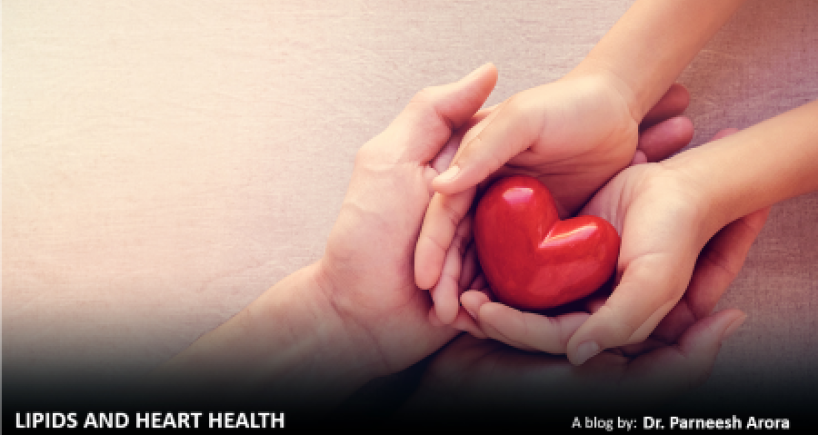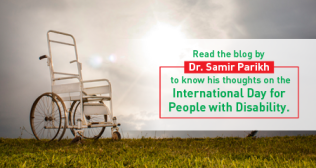
Cardiac Sciences
Lipids And Heart Health
admin Oct 11, 2023

Abnormal lipids have been identified long back as a risk factor for getting coronary artery disease (CAD) leading to heart attack. Initially, elevated cholesterol was considered as a risk, but now even abnormal constituents (Dyslipidemia) is labelled as a risk factor. Metabolism of fats is complex. Simply put the dietary fats undergo absorption in intestines with help of enzymatic breakdown and are transported through circulation to liver for resynthesis and storage. The fats are released from liver and are transported to muscle cells for utilisation during activity. The fat is transported as complexes, called as lipoproteins which can be measured in blood.
The traditional way to measure cholesterol is to do a full lipid profile. Fasting is preferred however, non-fasting blood sample is also fine as only triglycerides are affected. The lipid profile consists of two components – good cholesterol (HDL or high density lipoprotein) and bad cholesterol which comprises TC (Total cholesterol) LDL (Low density lipoprotein) VLDL (Very low density lipoprotein) TG (Triglycerides). Another way to evaluate is ApoB (bad lipoproteins) to ApoA (good lipoproteins) ratio which should be low ideally. The bad components cause injury to lining of vessels called endothelium. Once damaged, the harmful constituents of blood penetrate this lining and accumulate underneath it. This stimulates an injury response which causes accumulation of fat, muscle cells, inflammatory cells, calcium leading to formation of deposits called as plaques which protrudes into lumen causing blockages. With passage of time, the plaque continues to grow and further compromises the lumen of vessel leading to onset of symptoms. Sometimes it bursts suddenly leading to a heart attack.
The primary component on which the recommendations for treatment are based is LDL cholesterol. The normal level of LDL cholesterol for low risk individuals is suggested to be less than 116mg/dl. As the risk perception based on other associated factors goes up, the level of LDL recommended goes down. For individuals at highest risk LDL levels less than 55mg/dl is recommended. Level at which treatment is begun with drugs called as statins is different for different risk groups for example if LDL is 140 in a low risk individual, life style modification is strongly advocated first rather than medication. The amount of risk associated can be put simply as every 10% increase in total cholesterol increases coronary artery disease risk by 20% to 30%. Every 1% increase in HDL cholesterol reduces risk of CAD by 2 to 3%. A 1% rise in LDL cholesterol increases risk by 2 to 3%. It is strongly recommended to measure lipid profile at least once at age 30 yrs. Subsequently it can be repeated at a frequency depending on seriousness of abnormality detected. The higher the risk based on associated factors the more the frequency of repetition.
Treatment depends on risk factors. life style measures diet and exercise should be advocated for every individual. For high risk individuals, medications mainly statins are indicated.



















